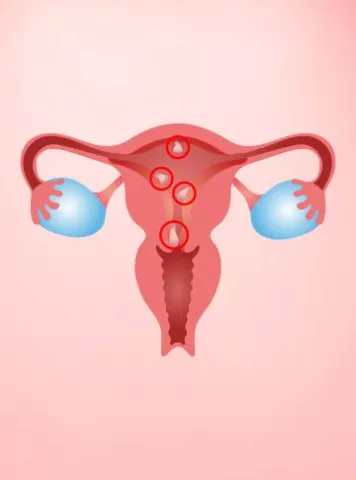What is Miscarriage?
Miscarriage, also known as spontaneous abortion, is the loss of a pregnancy before the 20th week. It is a common occurrence during early pregnancy, often happening within the first trimester. This loss can be emotionally and physically distressing for the individual and their family.
Who can get Miscarriage?
Miscarriages can happen to anyone carrying a pregnancy. It’s estimated that about 10-20% of known pregnancies end in miscarriage. Factors such as maternal age, underlying medical conditions, lifestyle choices, and genetic factors can influence the risk of miscarriage.
What are the Types of Miscarriage?
1.Threatened Miscarriage: Characterized by vaginal bleeding and the possibility of a miscarriage, but the cervix remains closed.
2.Inevitable Miscarriage: Involves bleeding, with an open cervix, indicating that a miscarriage is likely to occur.
3.Complete Miscarriage: When the pregnancy tissue is expelled from the uterus.
4.Incomplete Miscarriage: Occurs when only a portion of the pregnancy tissue is expelled, and some remains in the uterus.
5.Missed Miscarriage: The embryo or fetus has died, but no symptoms like bleeding or cramping have occurred.
What are the Causes of Miscarriage?
Several factors can contribute to a miscarriage:
- Chromosomal Abnormalities: Errors in the number or structure of chromosomes in the fetus.
- Hormonal Imbalances: Problems with hormones, particularly progesterone, essential for maintaining pregnancy.
- Uterine or Cervical Problems: Abnormalities in the uterus or cervix can contribute to miscarriage.
- Endocrine Disorders: Conditions such as diabetes, lupus, and thyroid disorders can increase the risk.
- Infections: Infections like rubella, toxoplasmosis, and certain sexually transmitted infections can cause miscarriage.
- Lifestyle Factors: Substance abuse, smoking, excessive alcohol consumption, and poor nutrition can increase the risk.
- Immunological disorders - Autoimmuno and alloimmuno factors in which antibodies are formed can also cause miscarriage.
What are the Symptoms of Miscarriage?
The symptoms of a miscarriage can vary, but common signs include:
- Vaginal bleeding: Ranging from light spotting to heavy bleeding.
- Abdominal pain or cramping: Often similar to menstrual cramps.
- Passing tissue or clots: This may be accompanied by a sudden decrease in pregnancy symptoms.
Does Miscarriage affect Fertility permanently?
A miscarriage does not typically cause permanent female infertility. Most women who experience a miscarriage can conceive again and have a healthy pregnancy. It's essential to consult with a healthcare provider to understand when it's safe to try to conceive again and if any precautions should be taken.
How is Miscarriage Diagnosed?
Diagnosing a miscarriage involves:
- Ultrasound: To check for a fetal heartbeat and confirm the pregnancy's location and viability.
- Blood Tests: Measuring hormone levels, especially beta-human chorionic gonadotropin (beta-hCG).
- Physical Examination: Including a pelvic exam to assess the cervix and uterus.
How is Miscarriage Treated?
The treatment for a miscarriage depends on the type and stage of the miscarriage. Options may include:
-
Expectant Management: Allowing the body to expel the pregnancy naturally.
-
Medication: Using medications to help the body expel the pregnancy tissue.
-
Surgical Intervention: A procedure to remove the pregnancy tissue, like dilatation and curettage (D&C).
Conclusion
Miscarriage is a challenging experience that many individuals face during their reproductive years. Understanding its causes, symptoms, diagnosis, and treatment options is crucial for coping with this loss. If you suspect a miscarriage or need guidance, it is essential to seek support from a healthcare professional.
Articles
2023


World AIDS Vaccine Day 2023: Can HIV & AIDS affect fertility or your infant’s health?
World AIDS Vaccine Day is observed every year on the 18th of May to create awa...
2023


Male Infertility Infertility Tips
Hyperspermia: Causes, Symptoms, Diagnosis & Treatment
What is Hyperspermia? Hyperspermia is a condition where an individual produ...


Guide to infertility treatments Infertility Tips
पीआईडी: पेल्विक इनफ्लैमेटरी डिजीज और निःसंतानता
पीआईडी - पेल्विक इनफ्लैमेटरी �...
2022


Infertility Tips Uterine Fibroids
Endometrial Polyps (Uterine Polyps)
What are Endometrial Polyps (Uterine Polyps)? Endometrial polyps, often ref...
2022


Female Infertility Infertility Tips
Why do You Need Fertility Treatment
As we all know infertility rate is constantly rising in our society day by day...
2022


Cesarean Section Vs Natural Birth
Surrogacy centers in Delhi and Infertility centers in Pune state that there ar...
2022


ನಿಮಗೆ ಹುಟ್ಟಲಿರುವ ಮಗುವನ್ನು ಅರ್ಥಮಾಡಿಕೊಳ್ಳುವುದು: ಗರ್ಭದಲ್ಲಿ ಮಗು ಹೇಗೆ ಬೆಳೆಯುತ್ತದೆ!
ವೀರ್ಯವು ಮೊಟ್ಟೆಯನ್ನು ಭೇಟಿಮಾಡ�...
2022


Diet Chart for Pregnant Women: The Right Food for Moms-To-Be
Pregnancy Food Chart 1. The daily diet must include the right amount of pro...
2022


Can i become pregnant while my tubes are tied?
Pregnancy is one of the most important phases in women’s life and is conside...
Pregnancy Calculator Tools for Confident and Stress-Free Pregnancy Planning
Get quick understanding of your fertility cycle and accordingly make a schedule to track it















